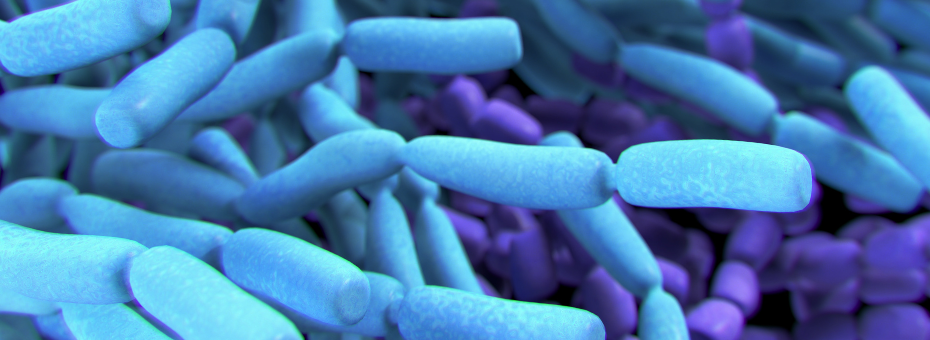For any practitioner who uses probiotics in their practice, there isn’t a clear-cut guide on the what, when and why of using probiotics for different conditions. Worldwide, over-the-counter consumption of probiotic supplements has increased in recent years. Notwithstanding, clinical studies for many probiotic strains and formulations have had conflicting results. New stool testing modalities, like 16s-RNA PCR and whole-genome sequencing, have helped assess gut colonization by probiotics, strain-level activity, interactions with resident flora, effects on the host, and the potential useful medical indications of specific strains. Regardless, trying to design test-guided probiotic formulations based on shot-gun sequencing of a stool specimen is still not exact science, as I have seen in patients who have tried customized probiotics through companies, like Sun Genomics, not achieve the intended results one would expect through “customization.”
The Benefits of Probiotics
Many studies have shown clear-cut benefits of using probiotics for various conditions, like traveler’s diarrhea and antibiotic-associated diarrhea, whereas other studies have been less conclusive. For example, looking into the potential role of probiotics in gut dysbiosis and irritable bowel syndrome, the data across multiple studies is promising, but precise conclusions about the effectiveness of probiotics and probiotic combinations still cannot be made. By and large, a lot of what has been learned in clinical practice has been through trial and error, but as we refine the use of probiotics in the coming years, more double-blind, placebo-controlled studies will be necessary to uncover the benefits of specific probiotic strains and multi-strain combinations.
For any new functional medicine practitioners, here are the basics. For traveler’s diarrhea, antibiotic-associated diarrhea, preventive antibiotic gut protection, and leaky gut, use at least 5 billion CFUs Saccharomyces boulardii twice a day. For IBS or dysbiosis, the range is from low to high and could start at 20 billion CFUs and go up to 100 billion CFUs once a day. But if you’re dealing with IBD (inflammatory bowel disease), then you might want to jump as high as 450 billion CFUs of a multi-strain combination daily.
Probiotics and IBD
The role of probiotics in IBD has been found to be promising in animal models and encouraging in human clinical studies. The most common beneficial strains include Bifidobacterium species, Enterococcus faecium, Lactobacillus strains, Saccharomyces boulardii, and Bacillus species, among others. The beneficial effects they exert involve several mechanisms: 1) quorum sensing signaling inhibitors, 2) production of short-chain fatty acids, like butyrate, 3) immunomodulation, including reduced production of tumor necrosis alpha and interleukin 8, 4) increased production of mucin 2, and 5) increased upregulation of defensin. Very high-potency probiotics seem to achieve the best clinical response.
Probiotics and SIBO
However, watch out for SIBO, because those patients cannot tolerate a high CFU count, and it will likely aggravate their symptoms. In that case, the research is pointing at the benefits of using a spore-based probiotic instead. In one study , comparing Rifaximin therapy followed by either a nutraceutical antimicrobial or the low-FODMAP diet vs. a spore-based probiotic, the spore-based probiotic performed just as well as Rifaximin arm followed by low-FODMAP and better than the Rifaximin + nutraceutical group. In another study comparing the low-FODMAP diet to probiotic therapy with Bacillus coagulans, symptom severity improved significantly more for the spore-based probiotic group.
Probiotics and Candida
For Candida or yeast overgrowth, aim for a multi-strain, high-potency probiotic with at least 100 billion CFUs, but you might want to go as high as 225 billion CFUs. And you’ll want to make sure that probiotic has several species of Lactobacillus, because with the increasing resistance of Candida to antimicrobial treatments, we need to look at specific probiotics as alternative therapies. Lactobacillus strains exert their anti-Candida effects through direct inhibition, by competing for adhesion sites or the production of interfering metabolites, and indirect inhibition, by stimulating the immune response of the affected patient.
Probiotics and Mental Health
How about the use of probiotics for psychological disorders, like anxiety and depression? Probiotics in this context have been referred to as “psychobiotics.” In one meta-analysis of randomized controlled trials, there was significant improvement in depression scale score in patients taking probiotics with major depressive disorder. In another systematic review, looking at double-blind, placebo-controlled or prospective studies, anxiety symptoms improved in patients after, compared to prior, probiotic supplementation. However, more needs to be investigated regarding the specific probiotic strains that have favorable effects.
The Bottom Line
In conclusion, can we say all probiotics are created the same? The answer: an obvious, “No!” Different probiotic strains and combinations will exert different effects, depending on the underlying condition you are treating. Even though more data is still needed, especially for certain conditions, the fact is probiotics are an essential part of the functional medicine practitioner’s toolbox. Knowing which probiotic to choose for which condition is both a science and an art. The important thing to remember is that until we understand all the individual factors that add up to how a patient responds to specific probiotics, an unfavorable, neutral, or unexpected response to one probiotic does not mean that they have failed all probiotics. The right probiotic or probiotic combination for a patient’s condition can have a noticeable, positive clinical impact on the outcome. 
Vincent M. Pedre, MD is the Medical Director of Pedre Integrative Health and Founder/CEO of Dr. Pedre Wellness, Chief Medical Officer of United Naturals, and a functional medicine-certified practitioner in private practice in New York City since 2004. He is also certified in yoga and medical acupuncture and part of the mindbodygreen collective of influencers with regular, popular blog posts.
In 2017, he joined Lifestyle Matrix Resource Center as the chief Clinical Expert of the Pillars of GI Health Program. In 2018, he joined the faculty for the Institute for Functional Medicine, teaching the first-ever introductory functional medicine courses to practitioners in Lima, Peru, Brisbane, Australia and Mexico City.
He believes the gut is the gateway to excellent health and a better brain. As the bestselling author of Happy Gut: The Cleansing Program To Help You Lose Weight, Gain Energy and Eliminate Pain, he has helped thousands of people resolve their digestive and gut-related health issues.
References
- Suez J, Zmora N, Segal E, Elinav E. The pros, cons, and many unknowns of probiotics. Nat Med. 2019 May;25(5):716-729. doi: 10.1038/s41591-019-0439-x. Epub 2019 May 6. PMID: 31061539.
- Principi N, Cozzali R, Farinelli E, Brusaferro A, Esposito S. Gut dysbiosis and irritable bowel syndrome: The potential role of probiotics. J Infect. 2018 Feb;76(2):111-120. doi: 10.1016/j.jinf.2017.12.013. Epub 2017 Dec 29. PMID: 29291933.
- McFarland LV. Systematic review and meta-analysis of Saccharomyces boulardii in adult patients. World J Gastroenterol. 2010 May 14;16(18):2202-22. doi: 10.3748/wjg.v16.i18.2202. PMID: 20458757; PMCID: PMC2868213.
- Amer M, Nadeem M, Nazir SUR, Fakhar M, Abid F, Ain QU, Asif E. Probiotics and Their Use in Inflammatory Bowel Disease. Altern Ther Health Med. 2018 May;24(3):16-23. PMID: 29135456.
- Catinean A, Neag AM, Nita A, Buzea M, Buzoianu AD. Bacillus spp. Spores-A Promising Treatment Option for Patients with Irritable Bowel Syndrome. Nutrients. 2019 Aug 21;11(9):1968. doi: 10.3390/nu11091968. PMID: 31438618; PMCID: PMC6770835.
- Abhari, K., Saadati, S., Hosseini-Oskouiee, F. et al. Is Bacillus coagulans supplementation plus low FODMAP diet superior to low FODMAP diet in irritable bowel syndrome management? Eur J Nutr 59, 2111–2117 (2020). https://doi.org/10.1007/s00394-019-02060-y.
- Ribeiro FC, Rossoni RD, de Barros PP, Santos JD, Fugisaki LRO, Leao MPV, Junqueira JC. Action mechanisms of probiotics on Candida spp. and candidiasis prevention: an update. J Appl Microbiol. 2020 Aug;129(2):175-185. doi: 10.1111/jam.14511. Epub 2019 Nov 21. PMID: 31705713.
- Huang R, Wang K, Hu J. Effect of Probiotics on Depression: A Systematic Review and Meta-Analysis of Randomized Controlled Trials. Nutrients. 2016 Aug 6;8(8):483. doi: 10.3390/nu8080483. PMID: 27509521; PMCID: PMC4997396.
- Vitellio P, Chira A, De Angelis M, Dumitrascu DL, Portincasa P. Probiotics in Psychosocial Stress and Anxiety. A Systematic Review. J Gastrointestin Liver Dis. 2020 Mar 13;29(1):77-83. doi: 10.15403/jgld-352. PMID: 32176751.





